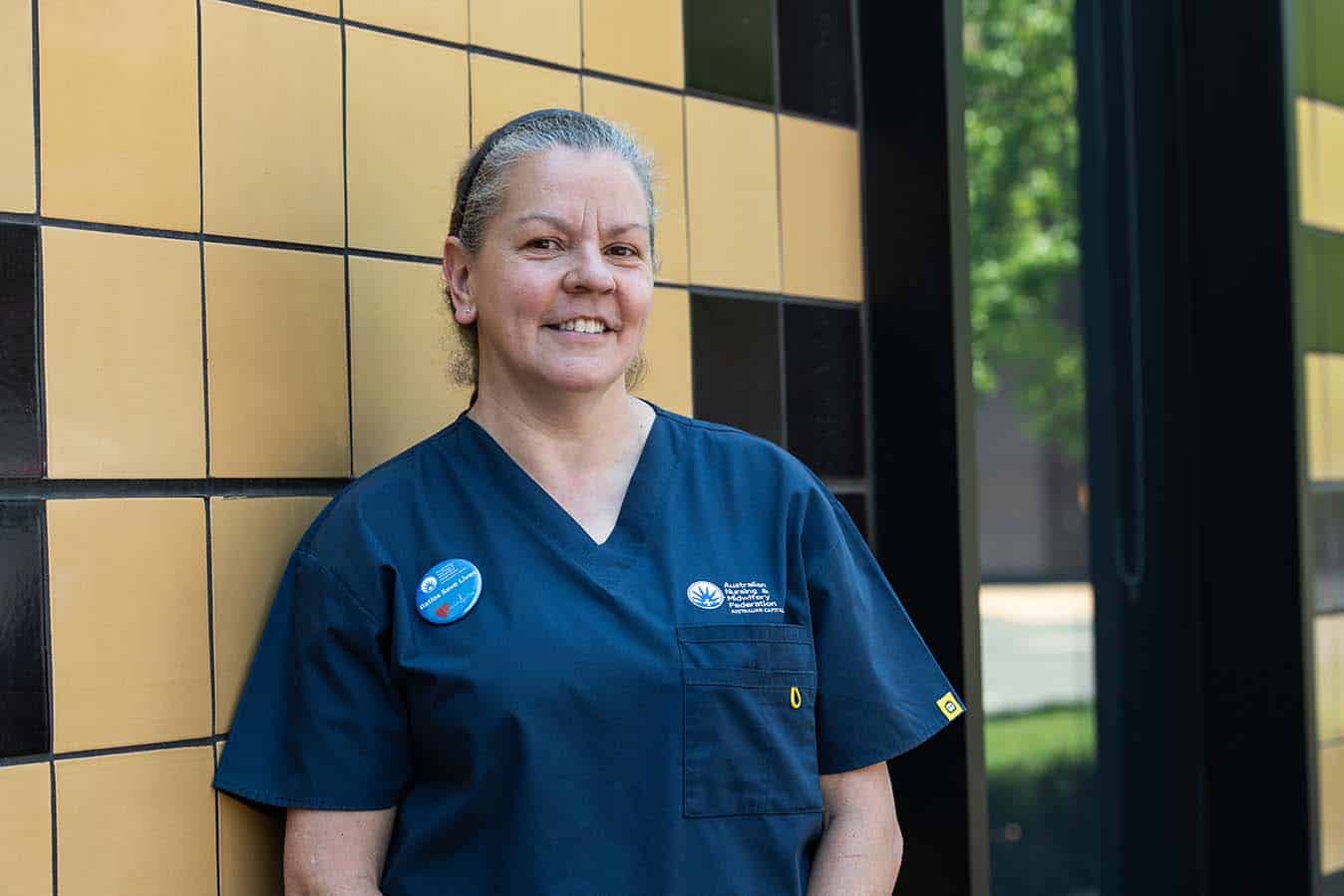Australia’s far-reaching bushfire crisis has seen homes destroyed, native animals killed, devastating impacts on fire-affected communities, and people lose their lives. Like other frontline workers, nurses have been at the forefront of relief eff orts.
“Everybody’s been getting in and offering whatever it is they have to help”.
The bushfire crisis that swept the nation first hit the ACT over last year’s Christmas and New Year period, with smoke drifting up from fi res raging along the south coast of NSW blanketing the sky.
“We spent about two weeks having the worst air quality in the world,” recalls registered nurse Lyndsey Ohman.
“People were quite anxious about their health and breathing in the air.”
As the bushfire threat intensified, led by the Orroral Valley Fire, which moved dangerously close to homes in the capital’s southern suburbs, a state of emergency was declared in late January.
Lyndsey says locals living in the area, hit by devastating fires in 2003, were understandably hypervigilant.
A qualified chaplain since 2010, Lyndsey volunteered at two evacuation centres in Canberra during the bushfire crisis, providing emotional and spiritual support.
At the relief centre in Dickson in the middle of January, many people had been evacuated from towns in NSW including Cobargo, Batlow and South Durras.
Everyone who arrived recounted stories of destruction, loss and fear, Lyndsey reveals.
Some had found it hard to access available government grants.
Others were just exhausted and needed a rest.
Locals affected by the bushfire smoke also visited the centre, some staying overnight.
Lyndsey says many people walking into the centres were too distraught to register with the Red Cross and fi ll out forms, so she would take them somewhere quiet and just listen to their fears and hopes before introducing them to other available agencies providing accommodation, food, clothing, toiletries and bedding.
Lyndsey, who has previously been deployed to disasters including the Lockyer Valley floods in Queensland and New Jersey in the US following Hurricane Sandy, says her role as a chaplain invariably involves being a ‘listening ear’ rather than providing formal counselling.
A medical surgical nurse at a hospital in Canberra, Lyndsey says she felt compelled to help out during the crisis.
Her husband and daughter, both nurses, also assisted, with her daughter volunteering with St John Ambulance in Cooma, Erindale and Dickson, providing first-aid as required.
At the relief centres, Lyndsey suggests people entered with two different mindsets.
Canberra had been relatively spared from the fi res, meaning locals came in seeking information and contacts in the event the situation worsened.
On the flipside, people evacuated up from the NSW coast experienced fi res at their doorstep.
“One man said the thing with the fi res is you know it’s there, you know it’s coming, it’s just a matter of time. It’s different with flood, the flood is there, it comes, it sits there for a while, but you’re not waiting for it to come. I think the anticipation must have just been awful.”
In early February, bushfires continued to burn in Canberra despite much-needed rain. But the threat began to ease in many areas.
At the time, Lyndsey said she was hoping Canberra could return to some normality and be afforded a bit of breathing space.
Reflecting on the devastating impacts of Australia’s bushfire crisis, Lyndsey says seeing the spirit of the nation banding together in the face of tragedy had at least provided some solace.
“If there had to be a good side to these fi res and it’s often hard to find one, that’s what I would say. We’ve seen fi res before, we’ve seen floods in Australia but I have never seen the community come and work together the way they have in this instance and it’s sort of no-holds barred, everybody’s been getting in and off erring whatever it is they have to help.”
Lyndsey represented the nursing profession at the ACTU’s Emergency Services Summit in Canberra in February, joining other frontline workers calling for more resources and urgent action.
She shared her story, calling for better communication during bushfire crises, and Support for vulnerable groups such as people being evacuated with Alzheimer’s and dementia.
“It was a really good place to meet with people from other unions from all parts of the country because sometimes there’s the temptation to think whatever’s happening is only happening to you and in this scenario we managed to talk to each other and tell each other our stories showing that we’re not on our own.”








